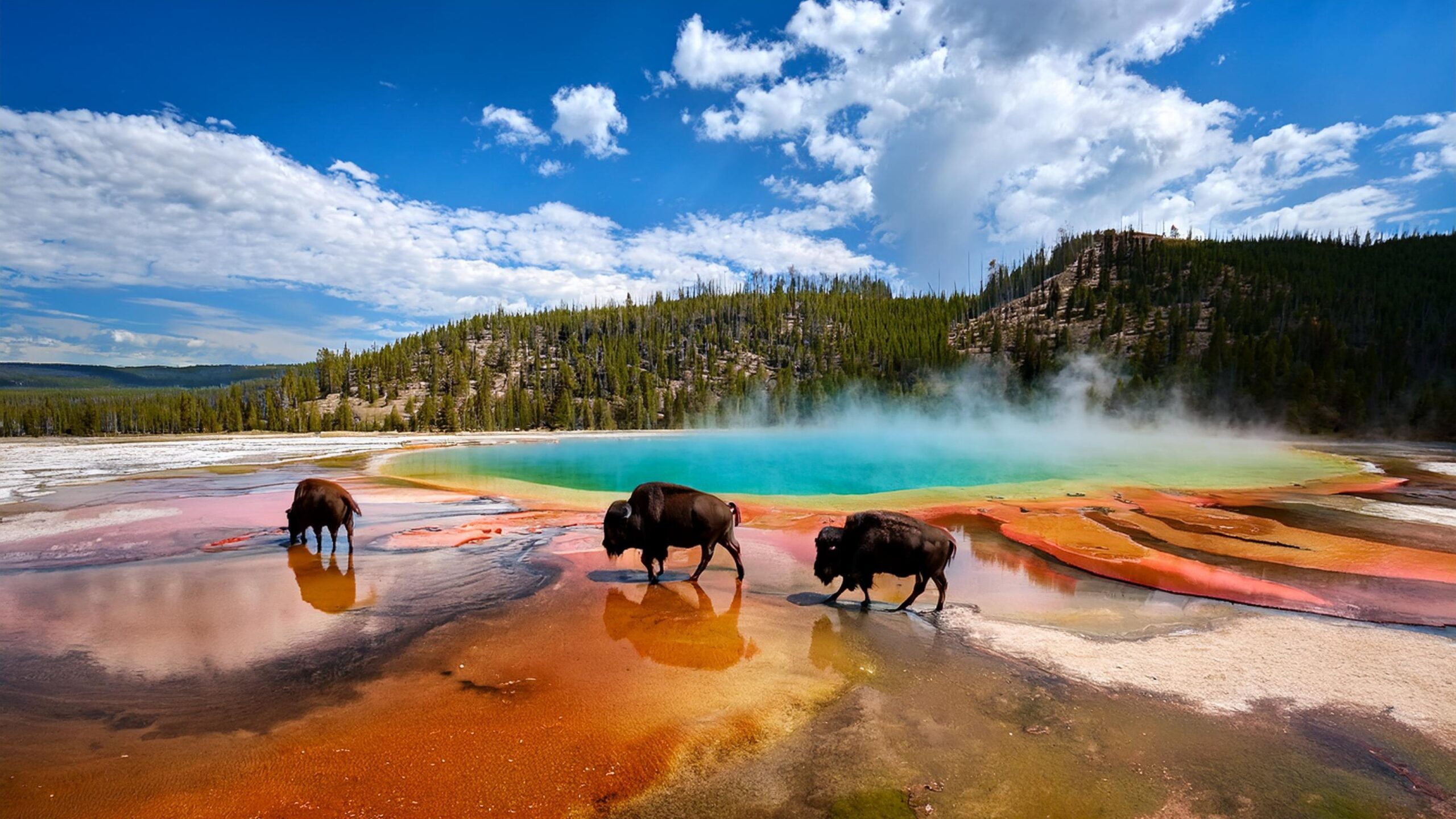Accommodation trends in the travel industry are constantly evolving. Whether you’re a seasoned traveler or planning your first trip, the choices available today can feel overwhelming. From hostels to boutique hotels, there’s something for everyone. So, what’s driving these changes? In this article, we’ll explore how accommodation trends have shifted over time and what the future holds. Let’s take a look at the transformation, from budget-friendly hostels to the rise of luxurious boutique hotels, and how these changes are reshaping the way we travel.
The Evolution of Travel Accommodation
Travel accommodation has undergone dramatic changes over the years. In the past, travelers had limited options: they could either book a traditional hotel room or opt for camping if they were on a budget. This simple choice has expanded significantly with the rise of various types of accommodations tailored to different needs and budgets. Today, travelers have access to a wide variety of accommodations, including hostels, boutique hotels, luxury resorts, vacation rentals, co-living spaces, and even glamping (luxury camping). This shift has been driven by the evolving preferences of modern-day travelers who are no longer satisfied with a one-size-fits-all approach to lodging.
What Are Hostels
Hostels are often defined as budget accommodations that offer shared rooms and basic amenities, providing affordable lodging for travelers, particularly young backpackers and those on tight budgets. Traditionally, hostels featured large dormitory-style rooms with communal bathrooms, and guests shared common areas like kitchens and lounges. The idea behind hostels was to provide a low-cost solution for travelers while fostering a social environment where guests could interact with one another. Over the years, the hostel experience has evolved significantly, adapting to the needs of a diverse range of travelers.
Today, modern hostels have redefined their offerings, combining affordability with comfort and style. Many hostels now feature private rooms and offer amenities such as free Wi-Fi, stylish common areas, and even en-suite bathrooms. These upgrades have made hostels more attractive to travelers seeking budget-friendly options without compromising on quality. Despite these improvements, hostels still retain their social aspect, where travelers can meet others, share experiences, and even collaborate on planning activities. However, hostels also come with their drawbacks. For some, the shared spaces and the sometimes noisy atmosphere can detract from privacy and relaxation, which is why hostels might not be ideal for every traveler.
The Rise of Boutique Hotels
Boutique hotels, on the other hand, offer a more intimate and unique experience compared to traditional chain hotels. These hotels are typically smaller, with fewer rooms, and are known for their distinctive designs, local flavor, and personal touches.
What makes boutique hotels so appealing? For one, they offer a more personalized experience. Whether it’s a tailor-made recommendation from the concierge or a locally-inspired breakfast, boutique hotels pride themselves on offering a sense of belonging and connection. The design elements are also a big draw. Boutique hotels often incorporate local art, historical architecture, and quirky design features that make them stand out from the bland, cookie-cutter rooms of larger hotel chains.
The Rise of Boutique Hotels
Boutique hotels have rapidly gained popularity as travelers look for alternatives to the generic, cookie-cutter experiences offered by larger hotel chains. These smaller, more intimate accommodations typically feature fewer rooms—often fewer than 100—providing a more personalized and tailored experience for each guest. What sets boutique hotels apart from traditional hotels is their emphasis on individuality, design, and local flavor. They often incorporate unique design elements, such as local art, vintage furniture, and culturally inspired décor, giving them a distinct and memorable character.
One of the primary reasons boutique hotels have risen to prominence is their ability to offer a highly personalized experience. Unlike larger hotels, which tend to operate on a standardized model, boutique hotels go above and beyond to make guests feel like they are at home. Here are some features that contribute to the appeal of boutique hotels:
- Personalized Service: Boutique hotels offer a higher level of customer service, often providing guests with tailored recommendations for local attractions, dining, and activities. Staff are typically more engaged with guests, ensuring that their needs are met in a more intimate and attentive manner.
- Unique Design: Every boutique hotel is different, often reflecting the local culture or history of the destination. From the architecture to the interior design, boutique hotels are full of character and creativity. This design focus not only enhances the guest experience but also sets the hotel apart from the mundane rooms found in larger chain hotels.
- Local Touch: Boutique hotels often feature locally sourced materials and products, whether in the form of food, decor, or amenities. This connection to the local community provides a more authentic experience for travelers, allowing them to immerse themselves in the culture and surroundings.
- Luxurious Comfort: Despite their smaller size, boutique hotels often offer luxury amenities and services, such as high-end toiletries, personalized spa treatments, and elegant rooms with unique furnishings. They combine the comfort of a luxury hotel with the charm of a more intimate and personalized space.
Ultimately, boutique hotels have become a favorite among travelers seeking more than just a place to sleep. Their unique offerings, attention to detail, and personalized service make them an appealing choice for anyone looking for an authentic and memorable stay.
Factors Driving Accommodation Trends
Several factors have played a pivotal role in driving the shift from traditional hotels to more unique and personalized accommodation options, like hostels and boutique hotels. These factors reflect the evolving needs and desires of modern travelers, who are no longer satisfied with standard, one-size-fits-all options. Let’s dive into some of the key elements influencing these trends:
- Changing Traveler Preferences: The modern traveler is no longer just looking for a place to sleep—people want to feel a deeper connection to the places they visit. They’re seeking unique, memorable experiences that go beyond mere comfort. Whether it’s the social camaraderie of a hostel or the luxurious and personalized experience of a boutique hotel, travelers are now seeking accommodations that align with their values, interests, and lifestyle choices. This shift is fueled by the desire to escape the ordinary and indulge in experiences that are more reflective of personal identity and individual tastes.
- Social Media’s Influence: The rise of platforms like Instagram and Pinterest has significantly influenced accommodation choices. Travelers increasingly look for places that not only provide a good experience but also offer aesthetically pleasing, “Instagrammable” moments. Whether it’s a quirky hostel with colorful murals or a stylish boutique hotel with an eye-catching design, these unique spaces attract attention on social media. As travel has become more visually-oriented, accommodations that stand out and offer visually compelling experiences tend to gain more popularity. In fact, many boutique hotels actively design their spaces with the intention of creating shareable moments that appeal to social media users.
- Technology in Travel: Technology has revolutionized the way travelers book and experience accommodations. Online booking platforms and travel apps have made it easier than ever for people to research their lodging options. Guests can read reviews, view pictures, and compare prices in real time, making informed decisions about where to stay. Additionally, customer reviews on platforms like TripAdvisor, Google Reviews, and Airbnb provide valuable insights that help travelers choose unique and personalized accommodations. With a growing emphasis on convenience and personalization, technology has shaped the accommodation industry, pushing providers to create more tailored, user-friendly experiences.
Hostels: The Budget-Friendly Option
Hostels have long been a go-to accommodation choice for budget-conscious travelers, especially younger generations, backpackers, and solo travelers. The primary appeal of hostels is affordability. They are usually much cheaper than hotels, offering basic, shared rooms and communal facilities like kitchens and lounges. This makes them an attractive option for those who are traveling on a budget but still want a comfortable and sociable place to stay. Hostels often cater to travelers who are more concerned with the experiences they can have at their destination rather than luxurious amenities. The low cost of staying in a hostel frees up money that can be spent on activities, excursions, and exploration, making them ideal for travelers looking to stretch their budget further.
Another significant draw of hostels is their focus on community. Many hostels are designed with shared spaces, where guests can meet, interact, and connect with other travelers. Whether through group activities, shared kitchens, or communal lounges, hostels encourage socializing and offer opportunities to make new friends or even join in local tours. These hostels create an environment where travelers from all over the world can exchange stories, advice, and tips. In addition, hostels are typically located in central areas near major tourist destinations, making it easy for guests to explore nearby attractions. This blend of affordability and social opportunities makes hostels an attractive choice for travelers seeking a budget-friendly, community-focused experience.
| Feature | Hostels | Hotels | Boutique Hotels |
| Price Range | Budget-friendly, lower cost per night | Mid-range to expensive | Moderate to expensive |
| Room Type | Shared dormitories, private rooms available | Private rooms with standard amenities | Unique, stylish rooms, often personalized |
| Social Experience | High, communal areas and events | Limited social interaction | Moderate, depending on the hotel |
| Location | Often in city centers, near tourist spots | Varies from urban to remote | Typically in central, trendy locations |
| Facilities | Basic, shared bathrooms, communal kitchens | Standard hotel amenities | Luxury amenities, personalized service |
Boutique Hotels: Luxury and Unique Experiences
Boutique hotels offer a contrasting experience to the budget-friendly world of hostels. These smaller, often independently owned properties focus on delivering a personalized, high-end experience that emphasizes luxury and uniqueness. While prices vary, boutique hotels generally offer more than just a place to sleep—they provide a full experience tailored to the guest’s needs. From the moment a guest enters, the boutique hotel experience begins, often with attentive staff ready to offer personalized recommendations, organize local experiences, and ensure that each detail of the stay exceeds expectations. These hotels are known for offering exceptional service, with many providing bespoke experiences like in-room massages, private city tours, and curated local activities that help visitors connect more deeply with the destination.
In addition to the top-notch service, boutique hotels also shine in their design elements. These hotels often feature distinctive, aesthetically pleasing interiors that reflect the local culture, history, or artistic trends. Unlike chain hotels, which tend to use the same design template in every location, boutique hotels often offer rooms filled with character, unique furniture, and décor sourced from local artisans or vintage shops. This level of personalization makes boutique hotels stand out as an ideal choice for travelers who are looking for more than just a place to sleep but an immersive experience that combines style, comfort, and authenticity. Whether a guest is staying in a chic urban loft or a cozy retreat in the countryside, the boutique hotel promises a memorable and luxurious stay that makes them feel truly special.
Blurring the Lines: Hybrid Accommodation Models
As the travel landscape evolves, a new category of accommodation is emerging that blends the best of both hostels and boutique hotels. These hybrid accommodation models are meeting the needs of a diverse range of travelers who seek the community feel and affordability of hostels, along with the comfort and privacy of boutique hotels. One of the most significant trends in this area is the rise of co-living spaces. These accommodations cater to long-term travelers, digital nomads, and remote workers who want to experience the social environment of a hostel while enjoying the convenience of having a private room and high-quality amenities. Co-living spaces often offer fully furnished rooms, high-speed internet, and communal areas where residents can network, collaborate, and socialize, creating a dynamic environment that is both productive and community-focused.
Additionally, many hostels are starting to offer more boutique hotel-like features. For example, some hostels now provide private rooms with en-suite bathrooms, stylish interiors, and concierge-style services. These upgrades allow hostels to cater to travelers who value the affordability and sociability of traditional hostels but also seek the comfort and privacy that boutique hotels provide. Hybrid models are particularly appealing to the growing number of travelers who seek flexibility in their accommodations. For example, a traveler might opt for a hybrid hostel for a short stay but would be able to extend their visit in a private room if desired, blending budget-friendly options with the luxury of more personalized service.
Impact of Sustainability on Accommodation Choices
Sustainability has become an increasingly important factor in shaping accommodation choices for today’s travelers. Eco-conscious travelers are more aware than ever of their environmental impact, prompting the hospitality industry to adjust its offerings to meet these concerns. Many boutique hotels have adopted green practices, focusing on energy-efficient amenities, waste reduction, and locally-sourced materials in both their interiors and services. Some boutique hotels go above and beyond by becoming certified green hotels, which adhere to strict environmental standards and reduce their carbon footprint. For example, they might use solar panels, energy-efficient lighting, and water-saving systems. These sustainable practices appeal to travelers who want to minimize their environmental impact while still enjoying a luxurious and unique stay.
The trend towards sustainability is also influencing hostels. While historically considered less eco-friendly due to their basic accommodations and larger shared spaces, many modern hostels are making strides to become more sustainable. This includes offering organic or locally sourced food options, providing recycling bins, and using energy-efficient systems in their facilities. Some hostels even focus on reducing plastic waste by offering refillable water stations and eco-friendly toiletries. The demand for green accommodation is not only driven by travelers’ concerns for the environment but also by a desire to align with personal values. As sustainability continues to shape the global travel landscape, more travelers are likely to prioritize accommodations that share their commitment to the environment.





